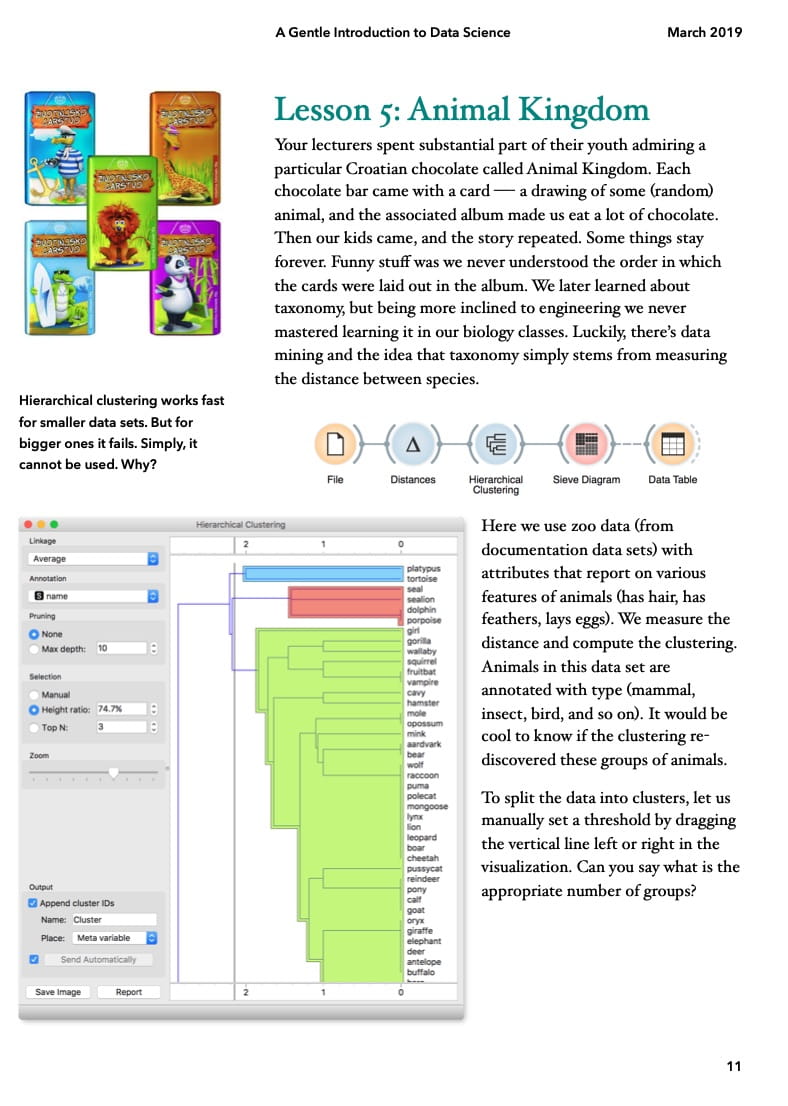education, workshop
Orange Lecture Notes
Blaž Zupan
Feb 08, 2020
In the past, we, the developers of Orange at the University of Ljubljana, have carried out over fifty hands-on workshops. We carried out the workshops for students in secondary schools, universities, Ph.D. programs, employees of scientific institutes, companies, and government institutions. We carried out the courses around the world and lectured in places like Houston, Pavia, Hanover, Moscow, Verona, Montreal, Luxemburg, Kolkata, Liverpool, Bari, Ashburn, Sao Paolo, Trieste, Bled, Lisbon, Konstanz, Oslo, Belgrade, Ostrava, Melbourne, Ås, Bochum, and Ljubljana. The lectures comprised an introduction to machine learning and data visualization and sometimes focused on more specific topics, like text or image mining, mining of spectral data, or even data mining in molecular biology.
All of our workshops are hands-on. We start with the data and a problem and then dive into solving a problem with Orange. No PowerPoint slides, no dull and detached lectures. In the workshop, Orange allows us to go straight into data analysis. Orange is different from other workflow-based tools since we designed it for teaching. Our workshops are, therefore, a perfect testbed for Orange. Through their design and execution, we learn about possible improvements and functionalities that we then add to Orange and try out at a forthcoming workshop.
We plan our Orange workshops by crafting a workshop program that we assemble into lecture notes. These notes are a refreshment material for the students and help workshop organizers who follow the lectures in the notes more or less strictly, depending on the audience, their engagements, and questions they may have during the workshop.
We are aware that our lecture notes can be of assistance to other lecturers and workshop organizers. We are releasing them here for reading, browsing, or reuse. Please find them on our server, or download them from the following list of selected workshops:
- Data Mining, a sixteen-hour two-week Ph.D. course at Baylor College of Medicine (Houston, 2019)
- Introduction to Data Mining, a three-hour workshop for Ph.D. students (Ljubljana, 2017)
- A Gentle Introduction to Data Science, a two-hour workshop at GIS Ostrava (Ostrava, 2019)
- Single-Cell Gene Expression Analysis, a three-hour workshop at Baylor College of Medicine (Houston, 2019)
The lecture notes teach concepts in machine learning and data science. For example, here is a snapshot of one of the pages from our lecture notes.

We tend to explain this through examples, and most often avoid any heavy mathematics. Our aim is the democratization of data science and would like to see Orange as an enabling tool that reaches a broad audience and complements toolboxes in R and Python that are intended for more tech savvy.